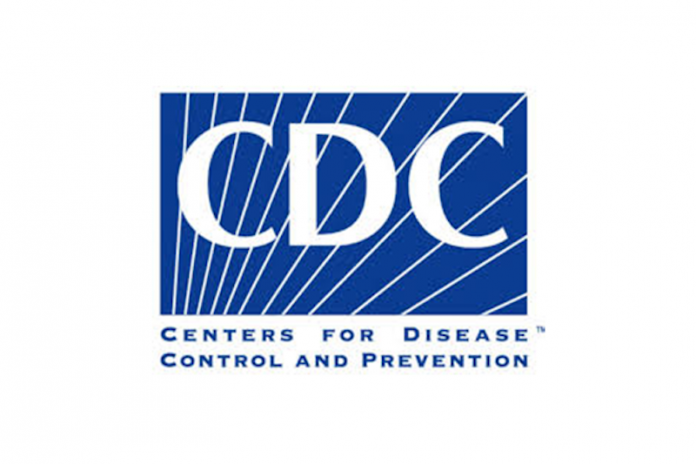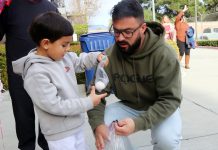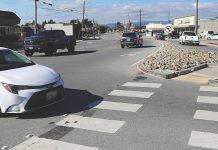SALINAS—The Centers for Disease Control and Prevention (CDC), public health and regulatory officials in several states and the U.S. Food and Drug Administration are investigating a multistate outbreak of E. coli O157: H7 infections linked to romaine lettuce harvested from the Salinas Valley.
Thus far there have been 40 reported cases in 16 states with 28 hospitalizations.
Based on new information, the CDC is advising that consumers not eat and retailers not sell any romaine lettuce harvested from the area.
Most romaine lettuce products are labeled with a harvest location showing where they were grown. Advice includes all types of romaine lettuce harvested from Salinas, such as whole heads of romaine, hearts of romaine, and packages of pre-cut lettuce and salad mixes containing romaine, including baby romaine, spring mix and Caesar salad.
If you have romaine lettuce at home:
• Look for a label showing where the romaine lettuce was grown. It may be printed on the package or on a sticker.
• If the label says “Salinas” (whether alone or with the name of another location), don’t eat it and throw it away.
• If it isn’t labeled with a growing region, don’t eat it and throw it away.
• If you don’t know if the lettuce is romaine or whether a salad mix contains romaine, don’t eat it and throw it away.
• Wash and sanitize drawers or shelves in refrigerators where romaine lettuce was stored. Follow these five steps to clean your refrigerator.
If you are buying romaine lettuce at a store:
• Look for a label showing where the romaine lettuce was grown. It may be printed on the package or on a sticker.
• If the label says “Salinas” (whether alone or with the name of another location), don’t buy it.
• If it isn’t labeled with a growing region, don’t buy it.
• Restaurants and retailers should check the label on bags or boxes of romaine lettuce, or ask their suppliers about the source of their romaine lettuce.
Suppliers, distributors, and others in the supply chain should not ship or sell romaine harvested in Salinas.
On Nov. 21, Missa Bay, LLC, recalled salad products due to possible E. coli contamination.
Do not eat or sell any of the recalled salad products, which were sold under many different brand names.
The recalled salad products have “Use By” dates ranging from Oct. 29, 2019, to Nov. 1, 2019.
Of the 28 hospitalizations that have been reported, five people have developed hemolytic uremic syndrome, a type of kidney failure. No deaths have been reported.










